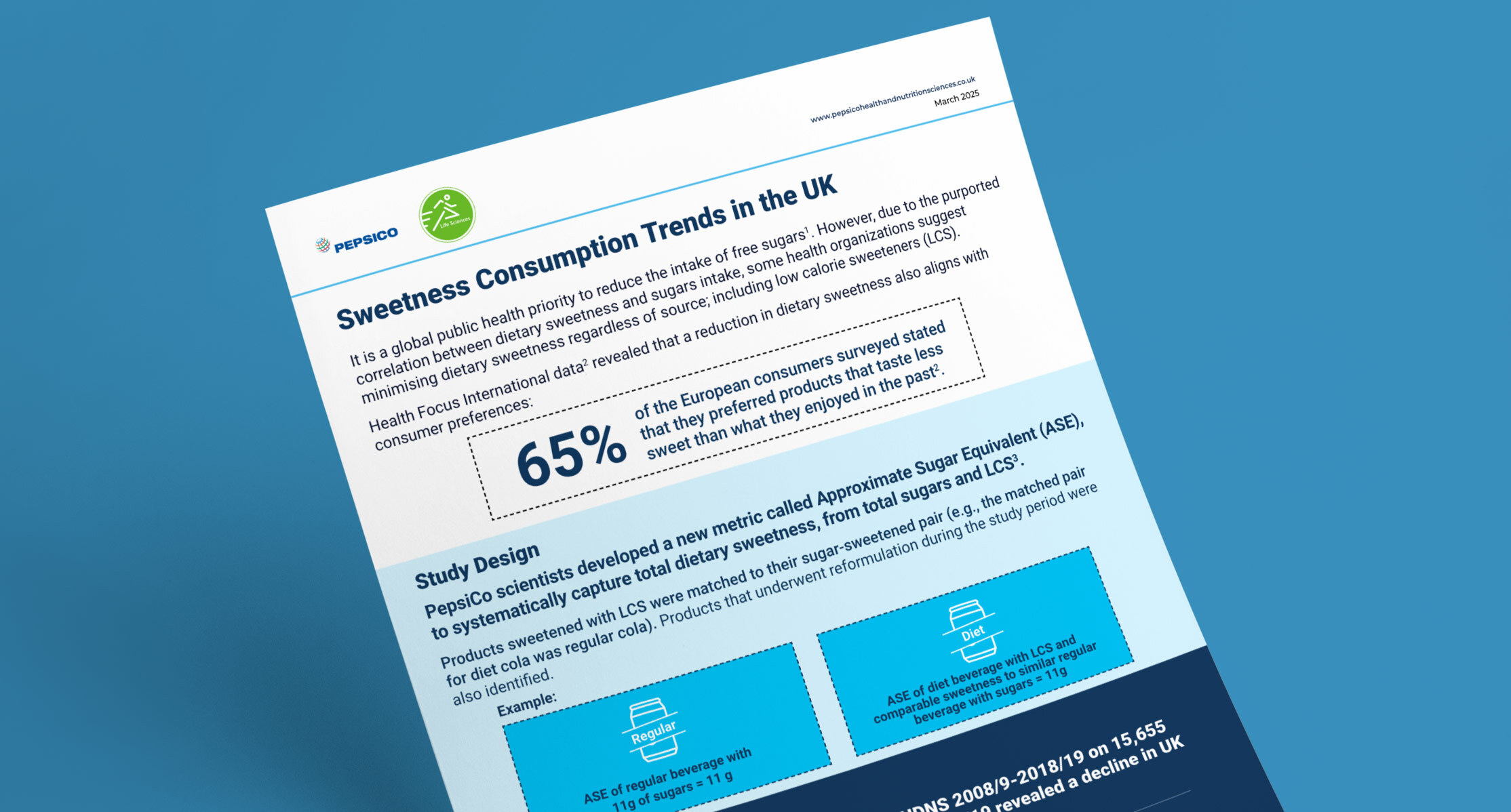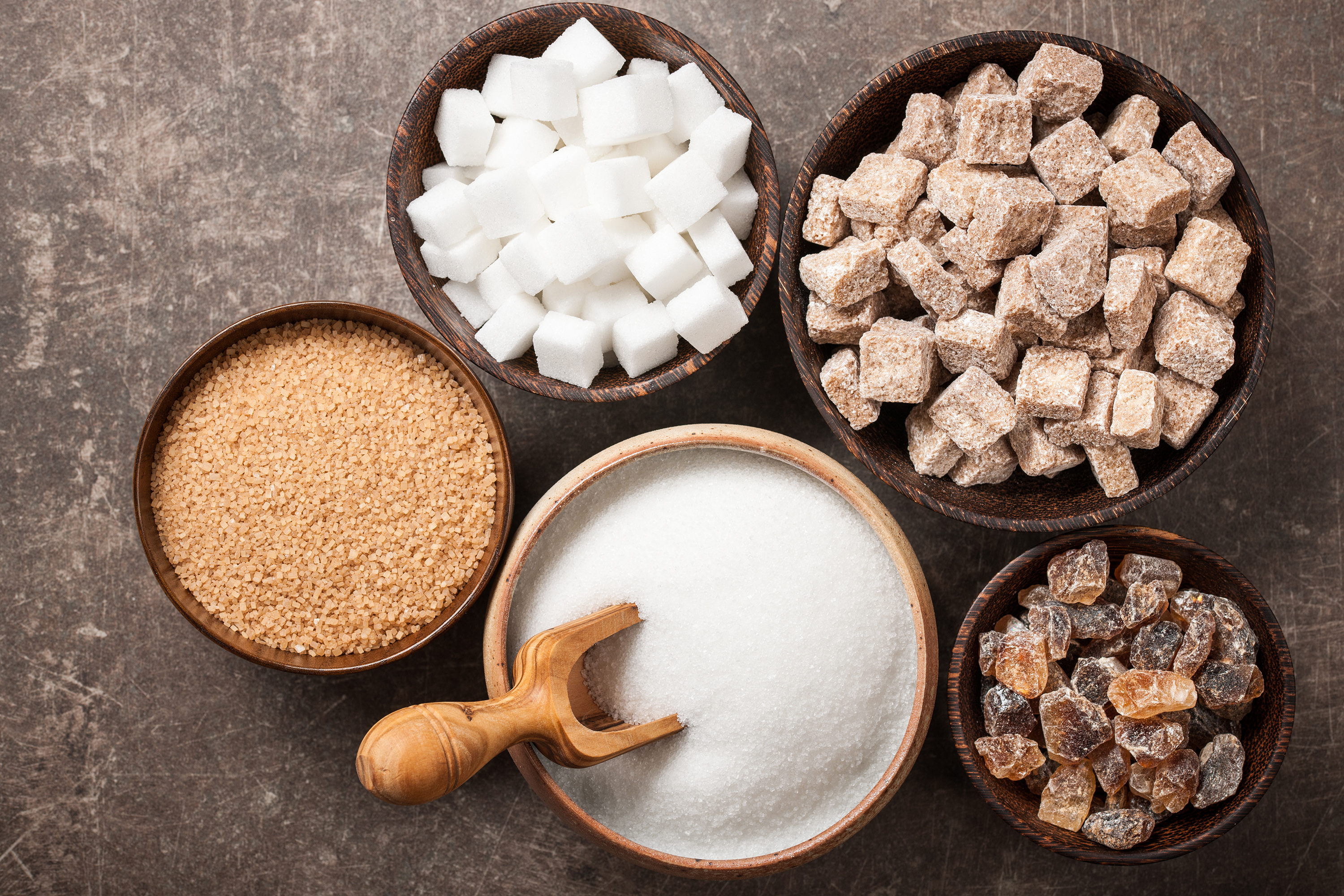Alison Kamil, PhD, RD
R&D Life Sciences Principal Scientist
Featured Publications:
Change in liking following reduction in sweetness level of carbonated beverages: A randomized controlled parallel trial & Sweetness Consumption Trends in the UK

What are the main takeaways from your research?
We are focusing on sweetness research to advance the scientific evidence and prevent regulations/policies from being developed in the absence of science. The main takeaways from the UK sweetness trends study was that sweetness has changed in the UK, due to a combination of consumer behavior, reformulations, policies, public health awareness programs, and media campaigns, emphasizing its multifactorial nature. Shifts in consumer preferences create an opportunity to offer a broader variety of sweetness levels in products. The main takeaways from the sweetness adaptation trial were that there is a possibility that consumers may be able to adapt to a less sweet beverage and strategies to achieve this change need to consider habitual diet and regional preferences.
What is the current state of the science on this topic?
Despite popular belief, there is no clear scientific evidence from the limited long-term studies that have been undertaken that we can reduce sweetness preference. Further, there is no clear scientific evidence to support that the sweetness of the diet needs to change to improve diet quality, including reducing sugars intake, or is related to indices of body fatness. To address this gap in knowledge, there has been an emergence of new science diving into the potential impact of sweetness in the diet.
Why are you interested in studying sweetness?
Sweet taste research is complex and multidisciplinary in nature. There are so many fields to delve into beyond taste, including sensory science, psychology, receptor biology, and nutrition science and is influenced by many factors like age, diet, culture and genetics.
What is something surprising or exciting you found in your research?
The reason that most people crave dessert after a meal is based on sensory specific satiety. That if one eats salty/savory food, one desires sweets later. Again, this highlights the multi-factorial nature of sweetness, that it’s not as simple as “increased sweetness increases calorie intake,” emphasizing that there is room for the enjoyment of sweet-tasting foods and beverages in a healthy diet pattern.
Where would you like to see the research go next?
Conduct more longer-term trials to understand the impact of sweetness on the diet and health and encourage public health organizations to create guidance based on the science. Delve into personalized sweetness, understanding the impact of genetic differences on sweetness perception. Explore if there is an influence of the microbiome on sweetness perception and vice versa. Understand the role of sweetness in taste overall, how it works similarly, differently, and in tandem with other tastes, like bitter.



